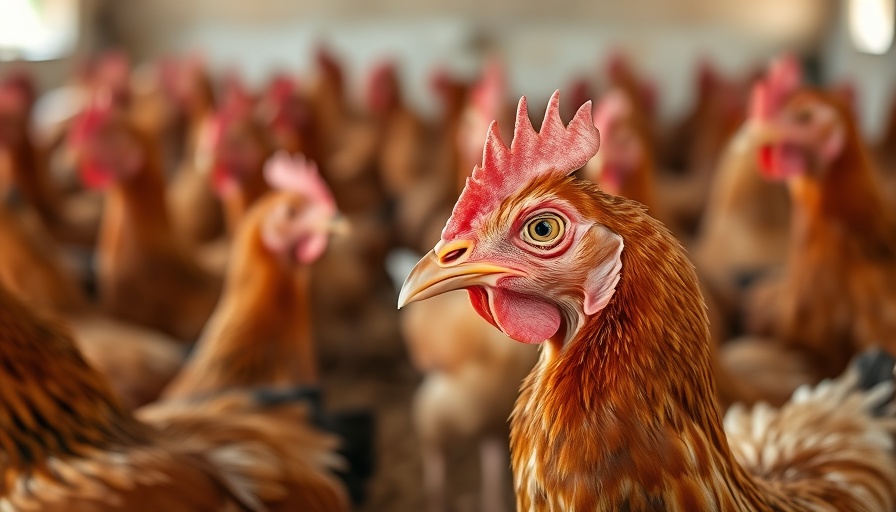
The Rising Threat of Bird Flu: A Wake-Up Call for All
In January 2025, a staggering 20 million commercially-raised birds in the United States, primarily egg-laying hens, were impacted by the highly pathogenic avian influenza, known as H5N1. While these numbers are alarming, they may only be the tip of the iceberg. Experts warn that the H5N1 bird flu virus could be a precursor to a pandemic far deadlier than the 1918 influenza outbreak, which claimed numerous lives and altered the course of history.
Evaluating Historical Milestones: Remembering the 1918 Influenza
The 1918 influenza pandemic is noted as one of the most devastating in human history. According to the World Health Organization (WHO), it resulted in more deaths in a single year than the entire course of the bubonic plague. This virus, originally interpreted through the findings of early 20th-century inspectors, linked avian influenza to the outbreak. It serves as a grave reminder of how closely connected human health is to that of our animal counterparts.
What Exactly Is Bird Flu and Why Is It So Dangerous?
Bird flu is a term that encompasses various strains of avian influenza, with H5N1 recognized as the most lethal variant for humans, boasting a mortality rate of about 50%. In contrast, the mortality rate of the infamous 1918 flu was less than 5%. Public health agencies like the CDC and WHO are sounding the alarm about H5N1’s potential to mutate and spread through human populations, raising fears about initiating the next significant health crisis.
Comparative Analysis: H1N1 vs. H5N1
Previously known for its impact, the H1N1 virus that caused the 1918 pandemic still persists today, albeit at lower virulence levels. Currently, H5N1 complicates the landscape of influenza viruses, raising questions about how such a strain—considered ten times deadlier—might disrupt not just public health, but also global economies and social structures should it become easily transmissible among humans.
What This Means for You Today
For those of us invested in maintaining a healthy lifestyle, the rising threat of bird flu is a critical consideration. Protecting oneself involves understanding nutritional needs that can help bolster immunity. Essential nutrients—like vitamins C and D, zinc, and protein sources—may operate as your first line of defense.
Actionable Insights for Healthier Living
To support a robust immune system, men aged 35 to 55—especially professionals and fitness enthusiasts—should focus on:
- Meal Planning: Organizing meals to prioritize essential nutrients can enhance immunity, aiding in resilience against viruses. Incorporating testosterone-boosting foods like spinach, bananas, and avocados can also play a role in maintaining overall health.
- Optimizing Fitness: Regular exercise is vital, not only for weight management but also for enhancing immune function. Whether focusing on strength training, cardio, or flexibility, it's crucial to incorporate a variety of workouts that suit your lifestyle.
- Smart Supplementation: Consider men's health supplements that are specifically formulated to cover any nutritional gaps in your diet.
Understanding these preventive measures is vital as we face potential health threats in the future.
Final Thoughts: The Power of Awareness
As we navigate through a world that safely harbors and regulates various strains of influenza, it's crucial to remain informed and take proactive steps in our health journey. Be proactive about your health decisions; implement nutritious practices today.
 Add Row
Add Row  Add
Add 




Write A Comment